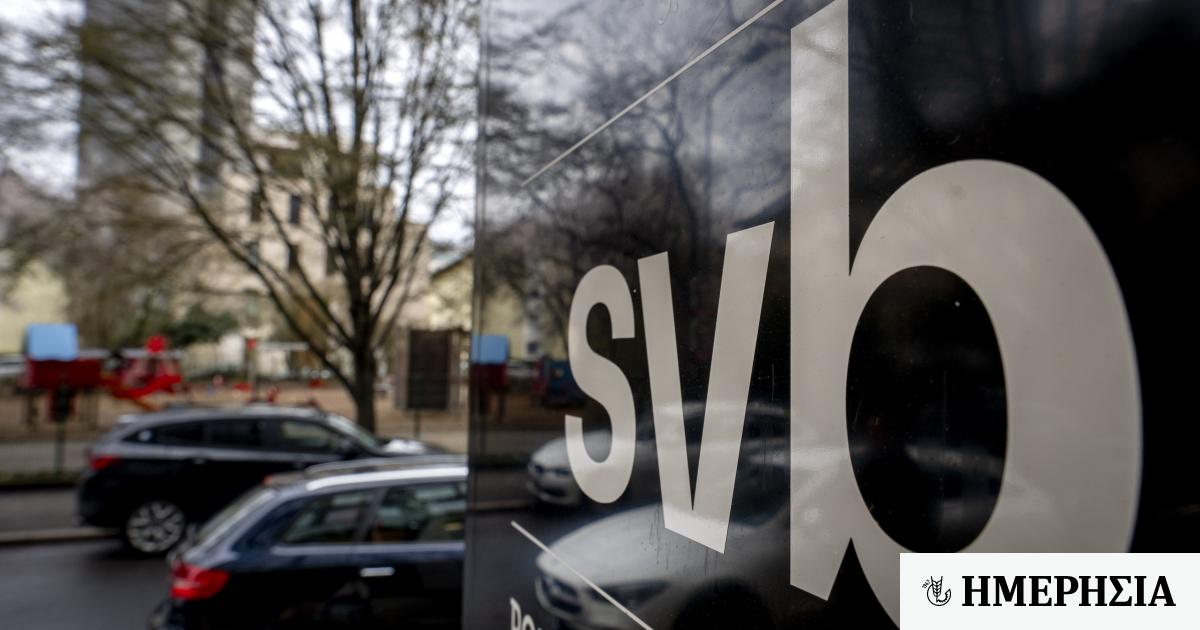
The global financial system is moving in troubled waters after the double collapse of Silicon Valley and… signature bank in the United States of America. The big players – see JPMorgan, the European Central Bank – have come out with ‘reassuring’ statements or leaks for fear of Domino effect In European banks, while the US federal authorities announced, as of Sunday noon, the safety of all deposits in both banks in an attempt to limit the damage and the flow of banks. However, the markets in Europe “bleeded” yesterday and no one can safely predict the future in an environment of increasing uncertainty.
Is there a possibility that Greece is at risk of large-scale spillovers from the twin bank meltdowns in the US? the “the” He sought answers from a finance professor at the University of Piraeus, Michael Glizako.
The banking crisis does not affect Greece
“It does not seem at the moment that this particular crisis can affect the Greek economy. Unless interest rates are pushed higher than we expected through the moves of the European Central Bank, in which case we will be affected indirectly. This will happen if there are unpleasant developments.” On the inflation front it was necessary to raise interest rates beyond the already known limits.
Of course, we must point out that bond valuations have fallen significantly, which is why our banks that have large sums of them in their portfolio are already calculating large accounting losses. On the other hand, they will write big gains due to the widening spread between lending rates (which are increasing) and deposit rates (which remain very low). Thus, through their profitability, they will compensate for part of these losses.
They are also highly liquid, which means they will not have to liquidate the bonds on a large scale, so some of the book losses will be recovered by holding these securities to maturity. So it makes sense that we should not be afraid for our banks, ”explains Mr. Glyzakos.
Professor of Finance at the University of Piraeus, Michalis Glyzakos
As he says, the risks associated with bank failures are short term and medium term.
Short term risks
“In the short term, the biggest risk is that depositors will freak out and run to withdraw their deposits,” notes Mr. Glyzakos. As is known, banks keep only a small part of the deposits in the treasury and the rest is given to households and businesses in the form of loans. Thus, if the bank’s clients collectively demand their money – the so-called bank management – the bank will not be able to respond, so it will go bankrupt.
“We don’t know now if this risk exists or not. I think it is small, ”the professor of finance estimates, saying that the intervention of the federal authorities will save the situation.
US Treasury Secretary Janet Yellen and Federal Reserve Chairman Jerome Powell made it clear in a joint statement that 100% of deposits – insured and uninsured amounts – in the two collapsed banks are safe and available as of yesterday.
Is there a risk of running banks in Europe?
“In Europe, since 2016, there is a so-called bailout. Until then, deposits were guaranteed. From 2016 onwards, the amount guaranteed is relatively small. In bankruptcy, the bank gives what it can and depositors (along with bondholders and shareholders) get involved ) at a loss.”
If, for the above reasons, depositors feel their deposits are at risk, we may see many withdrawals. But, “I don’t think there is currently a risk of large withdrawals that the banks (which will also get ECB help) can’t respond. There are no such signs at the moment.”
risks in the medium term
But in addition to the short-term risks of bank outflow, there are also medium-term risks of devaluation of bank bond portfolios. “As interest rates go up, the value of bonds goes down. All banks have incredibly large amounts of bonds in their portfolios,” explains Mr. Glyzakos.
With 420 trillion global private debt
Just think that a large part of the world’s debt (which is over $300 trillion) is in the form of bonds, and a large part of it is owned by banks. The potential harm is immeasurable. Accounting losses of hundreds of billions of dollars have already been recorded. It is enough to think that today, many bonds with a face value of 100 € are liquidated at 80-85 €, causing the holder to lose 15-20%.
This is the danger in the medium term. But it will likely fade in the coming months,” notes Mr. Glyzakos.
How could the danger vanish? “If inflation starts to fall, then the rate hike will stop. In this case, book losses on bond portfolios will be limited.
However, the situation is fluid and points of view change day by day, because the facts are constantly changing.
Follow Imerisi on Google News!

“Avid problem solver. Extreme social media junkie. Beer buff. Coffee guru. Internet geek. Travel ninja.”





More Stories
Used Car Travels Around The World – Crashed, Sold For New Car
If it weren’t for the merger of Attica Bank and Bankritia, they could have collapsed.
Debt: When will it return to 60% of GDP – “Snowball” Stournara and the Greek Bell